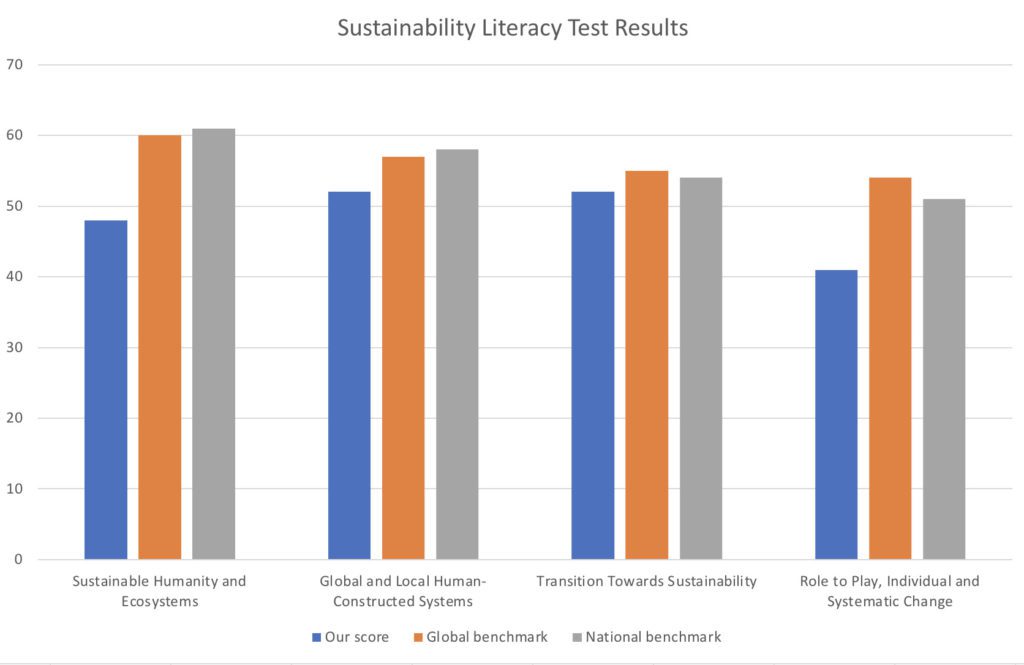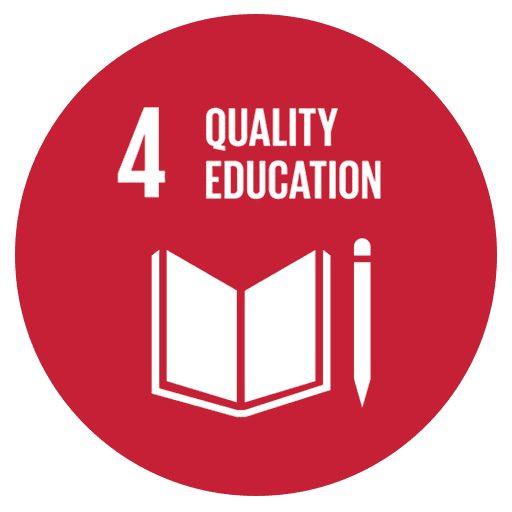Additional material Estela Castelli Florino Pilz Projects and Community Management at Sulitest
The University of Worcester has already more than proven its commitment to building a sustainable future with its many community and environmental projects leading to the acquisition of several awards. As Sustainability Institution of the Year in 2019 with a High Commendation in the International Green Gown Awards 2020, sustainable living is at the heart of the university. To explore this further, the University decided to invite students to Sustainability Literacy Test (SuLiTest).
The University’s Learning and Teaching Strategy 2020 – 2025 has ‘Education for Sustainable Futures’ and one of its five areas of focus and impact, which demonstrates the University’s commitment to ESD and embedding the SDGs. Additionally, ‘Social Responsibility’ (Graduates who are globally and socially responsible, culturally aware and understand the ethical impact of decisions) is one of the five graduate attributes outlined in the Strategy which provides an essential framework for curriculum and pedagogical development within UW courses.

Sulitest is a global movement whose mission is to improve ‘sustainability literacy’ and it offers a set of online tools for raising awareness and improving understanding of the 17 UN Sustainable Development Goals (SDGs). Its best-known tool, the ‘test’, is an easy-to-use, online, set of 30 multiple choice questions designed to be taken by anyone globally. The test offers the opportunity for students to learn more about sustainable development as each question is accompanied by feedback showing the history or science behind the expected answer and includes links that those taking the test can use to keep on learning. The long-term aim of this test is to ensure that the next generation understands the importance of sustainable living and how to achieve it.
But how did we do?
Here at Worcester, we have been looking to use the test as a way of assessing the extent of understanding our students have about sustainability, particularly when they start at the university. Students registering in September 2021 were invited to undertake the test on a voluntary basis. This continues annually for both semester 1 and semester 2 registrations. Numbers voluntarily taking the test have increased each year with 725 enrolling in the latest data set of which 534 completed the task.
Whilst Worcester certainly does its bit for sustainability, the student’s knowledge of sustainability wasn’t quite as sharp. Our scores in the majority of the areas were slightly below the average for our country and globally. Our students’ most successful area was Transition Towards Sustainability, understanding the future we want, arguably the most important area of the test.
Here are some more, in-depth details about our results.

Our students compared less well in an understanding of ‘Role to Play’, so how to take personal action to address sustainability issues, and ‘Sustainable Humanity and Ecosystems’, knowledge of where we are at in terms of the climate crisis and global inequality. This indicates areas where we can work to support students to develop their knowledge whilst at Worcester and also equip them with the understanding and skills to be active agents of change for a better tomorrow. Ways in which the university is seeking to do this is by making sure students are clear on how their courses address the challenges as set out by the SDGs, providing opportunities to improve their Carbon Literacy and also by providing students with opportunities to get involved in actions through sustainability campaigning and volunteering.
